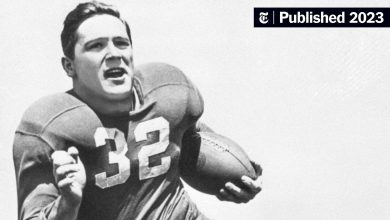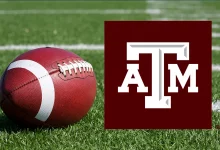Another analyst cools Arch Manning hype, comparing Texas QB’s early struggles to some of the SEC’s least successful quarterbacks, urging fans to be cautious.

Arch Manning, one of the most hyped quarterback prospects in recent memory, entered the University of Texas with expectations soaring sky-high. As the nephew of NFL legends Peyton and Eli Manning and a five-star recruit, fans and analysts alike have eagerly anticipated his ascent to college football stardom. However, in the early stages of his Texas career, some analysts are urging caution, tempering expectations by pointing to struggles and growing pains reminiscent of some of the SEC’s less successful quarterbacks.
A recent analyst joined the growing chorus throwing cold water on the hype, making stark comparisons that have sparked debate in college football circles. This article explores the context behind this critique, the validity of the comparisons, and what it could mean for Arch Manning and Texas football moving forward.
The Early Hype and Expectations
Before stepping on campus, Arch Manning’s reputation preceded him. Rated a five-star recruit and widely regarded as a generational talent, many expected Manning to be an immediate impact player at Texas. The program and fans hoped he could lead a resurgence of Longhorn football, returning Texas to national prominence.
Media outlets devoted extensive coverage to Manning’s recruitment, celebrating his skills, poise, and football IQ. Analysts debated his potential, often drawing parallels to his famous uncles and imagining future NFL success.
Such hype is natural for players with Manning’s pedigree and talent. However, as preseason excitement wanes and real game footage accumulates, reality begins to take shape.
Early Struggles and Growing Pains
In his initial appearances, Arch Manning showed flashes of brilliance but also displayed typical rookie challenges. These included decision-making errors, inconsistency in accuracy, and moments of hesitation under pressure. Such issues are not uncommon for true freshmen quarterbacks adjusting to the faster, more complex college game.
However, critics have latched onto these early struggles, highlighting mistakes and turnovers that have cost the team valuable opportunities. This has led to increased scrutiny and comparisons to less successful quarterbacks who similarly entered college with high expectations but failed to meet them.
The SEC Comparison: Why It Matters
The analyst’s comparison of Manning to some of the SEC’s struggling quarterbacks is particularly pointed given the SEC’s reputation as the most competitive college football conference. The SEC consistently produces elite talent, including many top quarterbacks, but it also exposes weaknesses due to its demanding environment.
By comparing Manning to SEC quarterbacks who failed to live up to their billing, the analyst is cautioning that early hype doesn’t guarantee long-term success. It serves as a reminder that talent alone isn’t enough; development, mental toughness, coaching, and system fit are critical.
This comparison is a double-edged sword: it underscores the challenge Manning faces but also frames his progress against some of the toughest competition in college football.
The Pressure of Expectations
One of the greatest challenges facing Arch Manning is managing expectations. The legacy of the Manning family and the hype surrounding his recruitment have created immense pressure to perform immediately at a high level.
This pressure can be both motivating and paralyzing. Some players thrive under scrutiny, while others struggle to adjust. Early struggles can be magnified by the spotlight, leading to criticism that might be harsher than warranted for a young player still learning.
The analyst’s comments reflect this dynamic—highlighting the need for patience while also warning fans not to get ahead of themselves.
Coaching and Development at Texas
Texas’ coaching staff, led by Steve Sarkisian, plays a crucial role in Manning’s development. Sarkisian, an offensive-minded coach with a track record of developing quarterbacks, has publicly expressed confidence in Manning’s abilities and work ethic.
The staff’s approach includes tailored coaching, mental preparation, and gradual integration into the offense. While early mistakes are natural, the focus remains on long-term growth rather than instant perfection.
Success stories abound of quarterbacks who struggled initially but flourished after gaining experience and support. Texas hopes Manning will follow a similar trajectory.
Learning from Past Quarterbacks’ Journeys
Numerous college quarterbacks who entered programs with high expectations faced early adversity. Some eventually became stars; others faltered due to various factors.
Comparisons to SEC quarterbacks who struggled serve as cautionary tales but also as learning opportunities. Understanding what went wrong—whether coaching mismatches, injuries, or mental hurdles—can help Manning and Texas avoid similar pitfalls.
The key is resilience: the ability to learn from mistakes, improve, and adapt under pressure.
The Fan and Media Reaction
Fans and media have shown a mix of enthusiasm, frustration, and skepticism. While many remain hopeful and supportive, others question whether Manning can live up to the legacy and hype.
Social media discussions reflect this divide, with some fans defending Manning’s early performances as typical freshman growing pains, and others fearing the hype was overblown.
The analyst’s critical comparison adds fuel to the debate, encouraging fans to adopt a more measured view.
Balancing Hype with Realism
Ultimately, the situation calls for balancing hope with realism. Arch Manning is undeniably talented but remains a young player adapting to a new level of competition.
Patience from fans and media, combined with strong coaching support, creates the best environment for Manning’s success. Unrealistic expectations can hinder development by creating undue pressure.
The analyst’s caution serves as a reminder to appreciate progress over perfection and to allow Manning the time needed to grow into his potential.
What’s Next for Arch Manning?
Moving forward, Manning’s focus should be on continuous improvement: refining mechanics, reading defenses better, and developing leadership qualities. Consistent playing time and experience will be critical.
Texas’ coaching staff will need to provide stability, encouragement, and clear development plans to help Manning reach his ceiling.
Fans should look for gradual progress rather than immediate transformation. Success stories in college football often begin with adversity overcome.
A Long Road Ahead
Arch Manning’s journey at Texas is just beginning. While early struggles and critical comparisons to some of the SEC’s less successful quarterbacks have sparked debate, they do not define his future.
Greg McElroy’s and now other analysts’ cautionary voices underscore the complexity of developing a top quarterback in today’s demanding college football environment. They remind us that talent is just one piece of a larger puzzle that includes mental resilience, coaching, system fit, and time.
For Texas and Manning, the focus should remain on growth and process rather than instant gratification. With patience and support, Manning has the potential to become the star many envisioned—just on his own timeline.









